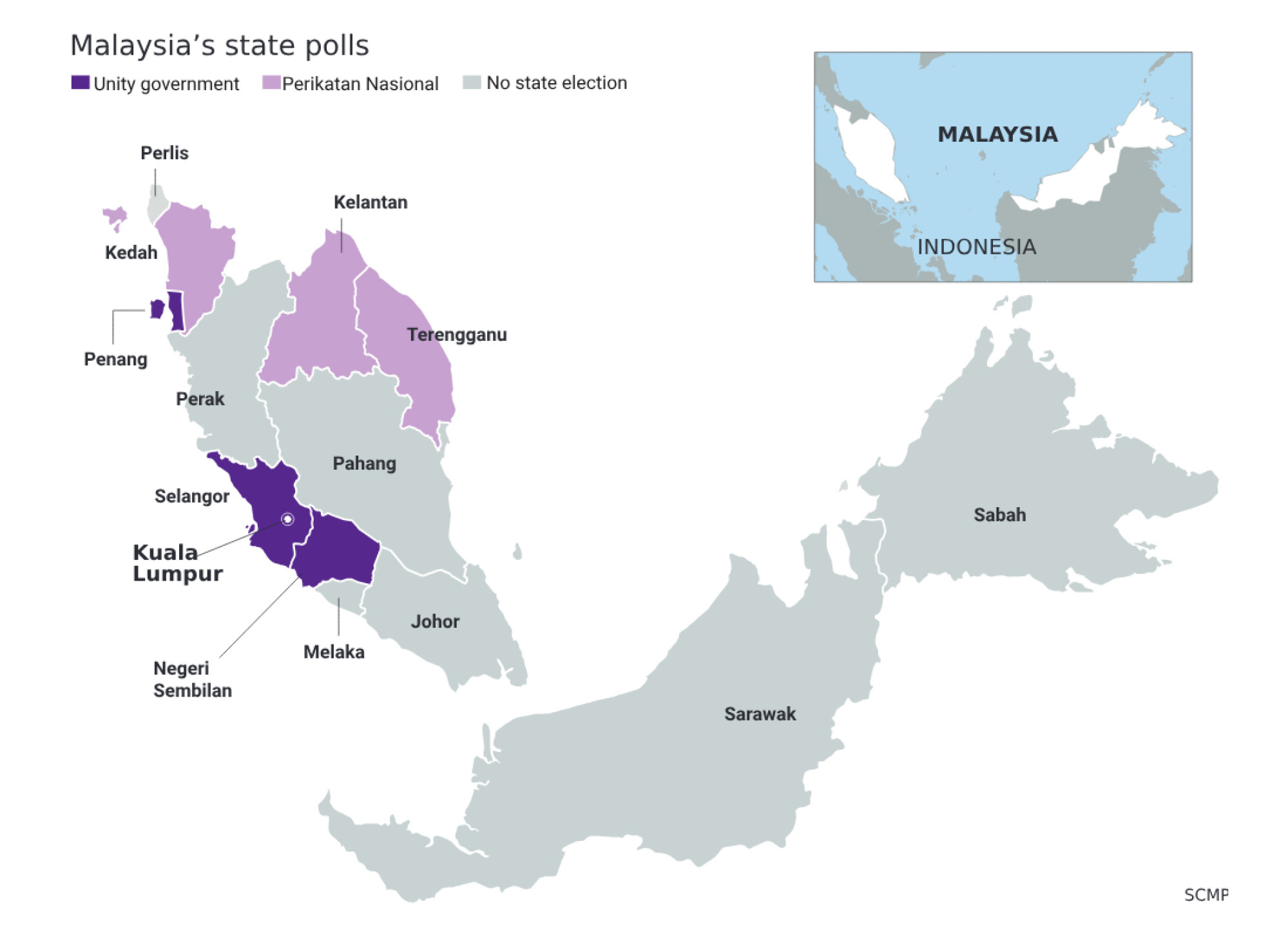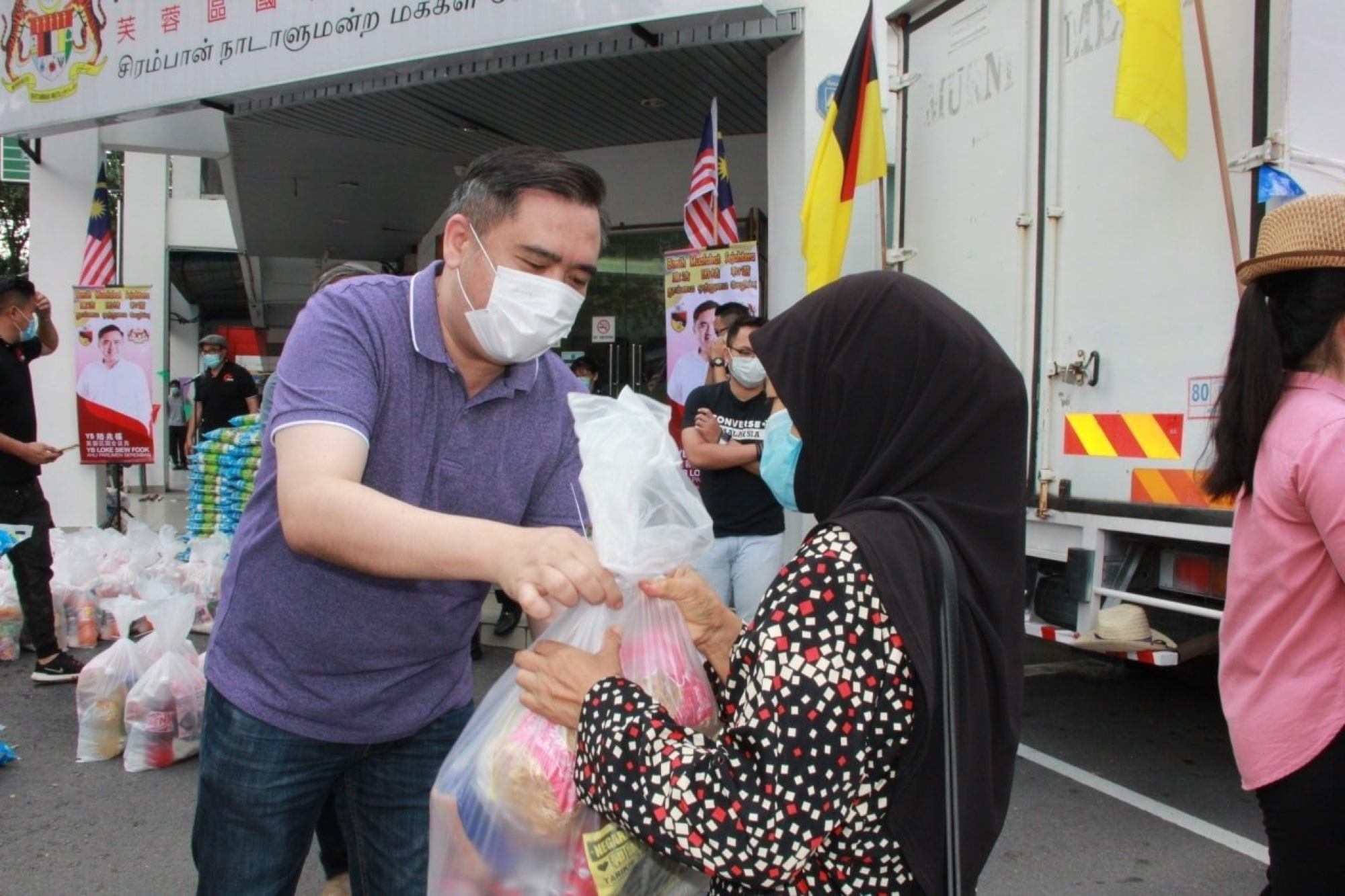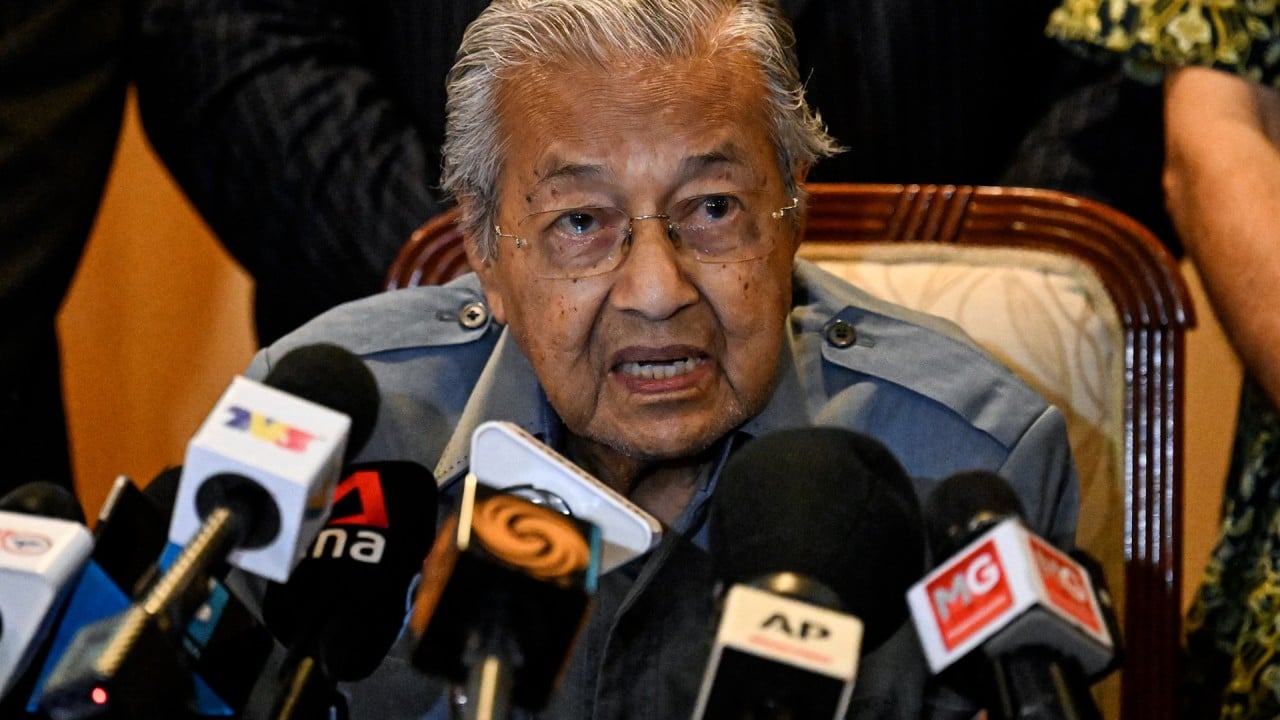
Malaysia state polls: DAP’s Anthony Loke says it’s a battle for stability, as campaigning hits final stretch
- Poor results for PM Anwar Ibrahim’s administration will cause political instability, but it won’t topple the federal government, Loke says
- ‘Malays do not lose anything in terms of political power’ by voting for Anwar’s unity government, the DAP chief tells This Week in Asia
“There are five Chinese ministers and one Indian minister, and cabinet decisions are made on consensus. How does that diminish the political power of the Malays?” Loke said. “The prime minister is Malay, a deputy prime minister is Malay, the home minister is Malay … there is no way that Malay political power will be eroded.”
More than 9.7 million people are registered to vote in 245 constituencies this weekend in the PN-held states of Kedah, Kelantan and Terengganu in the north of the Malaysian peninsula, as well as in the pro-federal government states of Negeri Sembilan and the two richest states in the country, Selangor and Penang.

He added that there was no basis behind claims that giving the DAP a share of federal power would chip away at the interest of the Malays – who account for more than 60 per cent of Malaysia’s 33 million population – especially when it was also a key argument employed in the past by rivals-turned-partners Umno.
“We have been addressing this issue for a long time. Logically speaking, the Malays do not lose anything in terms of political power. It’s just different parties and personalities [assuming power],” Loke told This Week in Asia.
“It is a work in progress. We can’t see it in the short term. At the respective ministries where we have DAP leaders, we try to bring a more moderate image for DAP.
“We are seeing more positive comments on social media, and it looks like we have a higher acceptance level among the Malays,” he added.

Fight for stability
But Loke admitted the threat remains of the “green wave” – so-called to reflect the party colour of the Islamist PAS, a key member of PN that benefited from a shift in Malay votes in November’s general election.
PN leaders have claimed they would come within striking distance of taking federal power if they register a strong performance in the state polls, including wresting power from PH in Selangor.
Loke said the federal government would remain intact regardless of the outcome of the state polls, but stressed that a bad result for Anwar’s administration would lead to a prolonged period of political instability.
“To me, maintaining the three states is the minimum target we need to achieve. Anything above that is a bonus and will only strengthen the unity government,” he said.
“If the results are not good for us, it will only empower the destabilising forces to keep going all year round.”
Uncomfortable alliance
The arrangement gave a way back into government for former ruling party Umno, which were left with just 28 of parliament’s 222 seats as their traditional Malay support base abandoned them for PN.
PH campaigners, including from key coalition member DAP, have said that the partnership with Umno has made for a difficult proposition for supporters from both sides, in light of decades of political enmity.
Loke, however, believes that the state polls have helped bring grass-roots members from both sides closer as they worked together to ensure that candidates under their perpaduan (unity) campaign do well.
“Any adjustment takes time … but the state elections have helped bring together our [election] machineries,” he said.
“Our grass-roots members are voters as well. If they are not convinced of this unity government, how are we to expect non-members to vote for us?”


